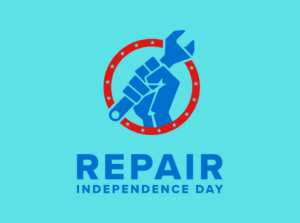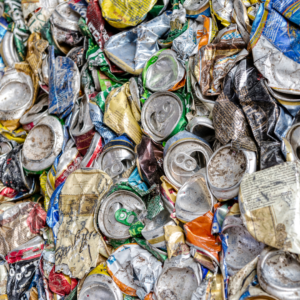Local Recycling Programs Don’t Accept Plastic Bags. Here’s Why.
Recycling plays a crucial role in reducing waste and preserving our planet. More than ever, consumers are committed to recycling, reusing, and composting their waste. The recycling of aluminum, glass, and paper has been well-established for many years and these materials are collected through curbside recycling programs across the country.
When it comes to plastic bags, it’s not quite as simple. There’s a common misconception that they can be recycled through curbside recycling programs. In reality, plastic bags pose significant challenges at all stages of the recycling process and are not easily recyclable for a variety of reasons.
At Eureka Recycling’s Material Recovery Facility – or MRF for short – where residential recyclables collected from Minneapolis, St. Paul, and several other Minnesota communities go to be processed, we deal with the dangers and challenges of plastic bags every day.
Plastic Bags Cause Problems
Plastic bags cause three main issues:
- They cause the machinery to malfunction and improperly sort materials
- They create unsafe conditions for facility workers, and
- They can contaminate other recyclable commodities and reduce the value of commodities and/or render recyclable material trash
Plastic Bags Cause Machinery to Malfunction
The lightweight and flexible nature of plastic bags causes them to get tangled in the sorting equipment, leading to costly malfunctions and improper sorting of materials. MRFs sort by size, weight, and shape. As a large, flat piece of cardboard moves across rotating discs, smaller heavier items fall down and through the spaces between the discs. When those spaces get clogged with wrapped-up plastic bags, material does not flow through the facility as intended to be properly sorted.
Plastic Bags Cause Safety Issues
In addition to making sorting equipment less effective, because plastic bags are made from petroleum they can cause fires when sucked into motors or can ignite with friction when stuck in equipment. Every day Eureka’s facility has to shut down processing operations for at least two hours to allow for workers to open up and physically get inside the inner workings of machinery to remove plastic bags. These workers cut through thick and tightly wrapped plastic bags. This downtime and added labor costs Eureka approximately $75k every year.
Plastic bags are challenging to sort in a Material Recovery Facility. Because they are lightweight – and when empty – are flat like paper, plastic bags will often end up in the paper line, contaminating the paper or making it more difficult to be further processed. Contamination reduces the quality and value of the recyclables and can render entire batches unsuitable for recycling, ultimately ending up in landfills or incinerators.
Additionally, when residents fill plastic bags with material – even if it’s recyclable material – it’ll again end up in a landfill or incinerator. There’s no telling what’s inside an enclosed bag, so workers on the sorting line do not open and empty plastic bags to protect their health and safety in an already extremely dangerous job.
Now, even if all the above wasn’t true, there’d still be significant challenges.
Recycling Markets for Plastics Bags are Not Viable Options for MRFs
One of the essential components of recycling is having viable end markets (someone who will purchase the material as feedstock for their own production and manufacturing of a product or packaging) for the recycled material. Plastic bags have a limited demand in the recycling industry. The market value for plastic bags from MRFs is very low. When thrown into a curbside recycling cart, tipped into a collection vehicle, compacted, and ultimately dumped into the multi-material pile at a MRF like Eureka’s, plastic bags get very dirty. Even if they were sortable, there are very few markets who want to buy this dirty material and the existing markets that do can’t provide a value to justify the collection and sorting of this material. This lack of demand and value discourages recycling facilities to invest the millions of dollars in equipment, labor, and downtime it would require to integrate plastic bag sorting into a multi-stream recycling program.
Solutions and Alternatives to Plastic Bags
Refuse Plastic Bags:
A simple, effective solution is to switch to reusable bags and eliminate the need for a single-use plastic bag. By carrying your reusable bags to the grocery store or mall, you never have to think about how to properly dispose of problematic plastic bags.
Repurpose:
If you do end up with a plastic bag, it’s not the end of the world; just repurpose it for household tasks like garbage liners or pet waste disposal.
Discourage their use:
Some municipalities have imposed plastic bag bans and/or required consumers to pay an additional fee for the use of bags. Supporting or advocating for these policies can encourage consumers to use reusable bags and cuts consumers’ reliance on having plastic bags in stores.
Store Drop-Off Programs:
Many retailers accept plastic bags through store drop-off programs. These programs collect clean and dry plastic bags separately, ensuring they don’t contaminate other recyclables. Make use of these designated collection bins to recycle plastic bags responsibly.
If you use ‘em or not, just remember that plastic bags – for the health and safety of our essential workers and the overall effectiveness of your local recycling program – definitely should not go in your curbside recycling cart.

Authentic Solutions to Plastic Pollution: A Plastic Free July Webinar & Film Screening
Join us on Wednesday, July 3st, at 2pm CT for the film screening and discussion. Reduce, reuse, then recycle: this

Repair Independence
It is Time to Assert Your Right to Repair Your Own Stuff! On July 1st, the Digital Fair Repair Act

Minnesota Passes Extended Producer Responsibility for Packaging
Minnesota just became the fifth state to pass Extended Producer Responsibility (EPR) for Packaging. The Packaging Waste & Cost Reduction

Strengthening the Economy and Environment Through Aluminum Recycling
The Importance of Aluminum Recycling Although aluminum is the most abundant element in the earth’s crust and the third most
